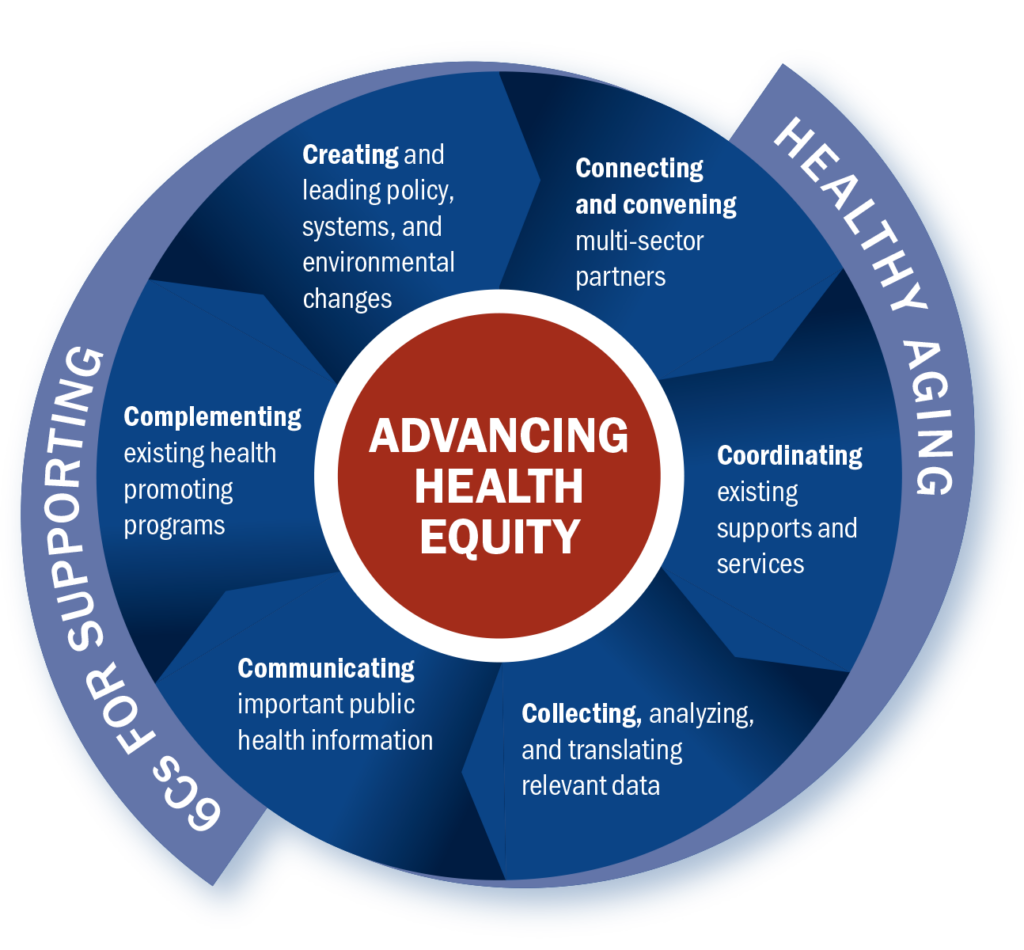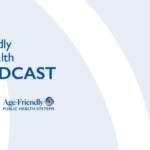New 6Cs Training and Implementation Guide will Help Communities Implement Strategies to Support Older Adults
TFAH’s Age-Friendly Public Health Systems (AFPHS) team recently released a new toolkit, The 6Cs Training and Implementation Guide, to give public health professionals an in-depth understanding of the AFPHS “6Cs” Framework. The guide will help communities build effective public health strategies and practices to support older adults.
Megan Wolfe, who leads AFPHS, sat down to answer a few questions about this new resource:
TFAH: What is the 6Cs Training and Implementation Guide and how did it come about?
Megan: The 6Cs Guide resulted from the need to provide guidance to state and local health departments seeking recognition through the Age-Friendly Public Health Systems (AFPHS) Recognition Program. The Recognition Program requires health departments to commit and complete strategies and activities and adopt policies and programs to support older adult health and well-being. These activities need to be aligned with the AFPHS 6Cs Framework. So, the Guide includes a comprehensive set of strategies that public health practitioners can learn and hopefully adopt as part of their AFPHS journey.
As we were developing the Guide, we realized that we accumulated a great deal of valuable resources that we could use to build a truly comprehensive library, including examples of data dashboards on older adults, examples of partnerships, as well as tools to enhance the community health improvement process.
TFAH: Who is the Guide intended for? Who should use the Guide?
 Megan: The Guide can be used by anyone who wants to build expertise in healthy aging, especially from a public health perspective. Our vision is that entire health department staffs will use it, but it’s also perfect for individuals or small teams to work through together.
Megan: The Guide can be used by anyone who wants to build expertise in healthy aging, especially from a public health perspective. Our vision is that entire health department staffs will use it, but it’s also perfect for individuals or small teams to work through together.
TFAH: How should an individual or community group use the Guide. Is there a proper order to best utilize the Guide?
Megan: The Guide is aligned with the six tenets of the AFPHS framework, so we developed one module for each of the six tenets, as well as an introductory module. We suggest that users start with the introduction and then complete Module 1, because it is focused on creating and leading change and really sets the tone for the other modules. After that, users can really jump around and complete whichever module that provides the guidance they need, or simply complete them in order, one through six.
TFAH: Are there any features in the Guide that are a personal favorite of yours?
Megan: So many things! My absolute favorite are the lists of resources that are included in each module. This will be a dynamic list that we’ll update regularly, based on the development of new tools and identification by our team of great examples of the 6Cs in action. I also really like the Competence Checks that are part of Modules 1-3, as they provide an opportunity for a user to reflect on the expertise they’re building and assess where they go next. Modules 4-6 have application exercises rather than Competence Checks, and these are valuable for putting the strategies into action.
 |
Megan Wolfe, JD is the Senior Policy Development Manager at TFAH, where she works with the Policy Development team to advance a modernized, accountable public health system through the Age-Friendly Public Health Systems initiative. |
